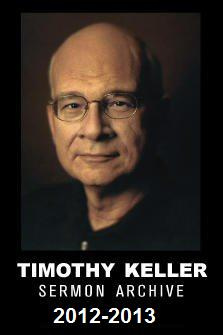Also by Timothy Keller
The Reason for God: Belief in an Age of Skepticism
The Prodigal God: Recovering the Heart of the Christian Faith
Counterfeit Gods: The Empty Promises of Money, Sex, and Power, and the Only Hope That Matters
Generous Justice: How Gods Grace Makes Us Just
Kings Cross: The Story of the World in the Life of Jesus
The Meaning of Marriage: Facing the Complexities of Commitment with the Wisdom of God
Center Church: Doing Balanced, Gospel-Centered Ministry in Your City
Every Good Endeavor: Connecting Your Work to Gods Work
The Encounters with Jesus Series
The Skeptical Student
The Insider and the Outcast
The Grieving Sisters
The Wedding Party
The First Christian
The Great Enemy
The Two Advocates
The Encounters with Jesus Series
VII
Timothy Keller
DUTTON
Published by the Penguin Group
Penguin Group (USA) Inc., 375 Hudson Street,
New York, New York 10014, USA
USA / Canada / UK / Ireland / Australia / New Zealand / India / South Africa / China
Penguin Books Ltd, Registered Offices: 80 Strand, London WC2R 0RL, England
For more information about the Penguin Group visit penguin.com.
Published by Dutton, a member of Penguin Group (USA) Inc.
Copyright 2013 by Timothy Keller
All rights reserved. No part of this book may be reproduced, scanned, or distributed in any printed or electronic form without permission. Please do not participate in or encourage piracy of copyrighted materials in violation of the authors rights. Purchase only authorized editions.
All Bible references are from the New International Version (NIV), unless otherwise noted.
E-book ISBN 978-1-101-61448-8
While the author has made every effort to provide accurate telephone numbers, Internet addresses, and other contact information at the time of publication, neither the publisher nor the author assumes any responsibility for errors or for changes that occur after publication. Further, the publisher does not have any control over and does not assume any responsibility for author or third-party websites or their content.
In the first five essays of the Encounters with Jesus series, I showed how the lives of everyday people were changed forever as they interacted with Jesus. Yet how can we encounter Christ today? In the final five essays, I am seeking to answer that question through five more events in the life of Jesus as they are presented in the New Testament Gospels.
When we think of Jesus last evening with his disciples, we normally think of the Last Supper in that upper room where they celebrated Passover. While Matthew, Mark, and Luke tell us a great deal about the Supper, the Gospel of John never mentions the breaking of bread or the drinking of wineit doesnt talk about the meal at all. Yet John gives us more information than anyone else about what happened in that room on that night. John provides us with what has been called Jesus Farewell Discourse, a long three-chapter address followed by a majestic prayer that takes up another chapter. Now, when you are about to die, you dont beat around the bush, and you dont go on tangents. You say the things that are most pressing on your mind and most important to your listeners. Knowing that, we should give great weight to Jesus main theme in this passage. While he touches on many subjects and topics, there seems to be one theme that is most prominent. It weighs on his heart just before his death. What is it?
Over the previous three years, the apostles had an ongoing personal encounter with Jesus Christ. They lived and worked with him, they talked and prayed with him. But now Jesus said, My children, I will be with you only a little longer.... Where I am going, you cannot come (John 13:33). This statement touches off expressions of alarm. Peter claims that he certainly will follow Jesus, wherever he goes, even at the cost of his life (13:37). Thomas is more circumspect but still confused, saying that since they dont really know what he is talking about; where exactly hes going; how can they come? (14:5). When Jesus responds that he is going to his Fathers house (14:23), Philip asks that Jesus would show us the Father (14:8).
Now if you have been reading the full account of Jesus life and ministry with these men, you will see how clueless such statements really are. Peter has no self-knowledge at all. Will you really lay down your life for me? Jesus asks him (13:38). But even more, despite Jesus constant teaching that he was to die for peoples sins, it simply has not sunk in. Jesus plaintively asks, Dont you know me... even after I have been among you such a long time? (14:9). That is a cutting question revealing a terrible fact. After all this time and attention, Jesus says, you dont really know me. You havent really had the deep, personal encounter with me that you need. The apostles have little understanding of their own hearts or, worse, of Jesus heart and purposes.
So the situation is dire. These are Jesus handpicked agents to take his message to the world. Yet they dont really know him yet, and the following day he will die! Not only that, but Jesus knows they are in for a great deal of persecution and opposition, beginning at the cross. What hope now is there that they will ever know him? But there is hopeand Jesus unveils it at first in an enigmatic way. He says to them:
I will ask the Father, and he will give you another advocate to help you and be with you foreverthe Spirit of truth. The world cannot accept him, because it neither sees him nor knows him. But you know him, for he lives with you and will be in you. I will not leave you as orphans; I will come to you. Before long, the world will not see me anymore, but you will see me. Because I live, you also will live. On that day you will realize that I am in my Father, and you are in me, and I am in you.... All this I have spoken while still with you. But the Advocate, the Holy Spirit, whom the Father will send in my name, will teach you all things and will remind you of everything I have said to you. Peace I leave with you; my peace I give to you. I do not give to you as the world gives. Do not let your hearts be troubled or afraid (John 14:1620; 2527).
Here Jesus says several remarkable things. He is talking about Gods Spirit coming to the disciples, and anyone who has read the Hebrew Scriptures knows that the Spirit of God is a force in the world that proceeds from the Father. But Jesus speaks of the Spirit in certain ways that would have been extraordinary to them.
First, he says that the Spirit is not merely a force, but a person. In Greek, nouns are assigned a gendermasculine, feminine, or neutraland the Greek word for spirit is neuter. But Jesus here often speaks of the Spirit as heshowing that we are not speaking here of some nebulous divine energy. Jesus is saying that after he leavesafter he diesthe Father will send a person in his place. Second, Jesus says that he will be leaving and this person will be coming. Unless I go away, the Advocate will not come; but if I go, I will send him to you (John 16:7). And yet, in some other sense, he says























